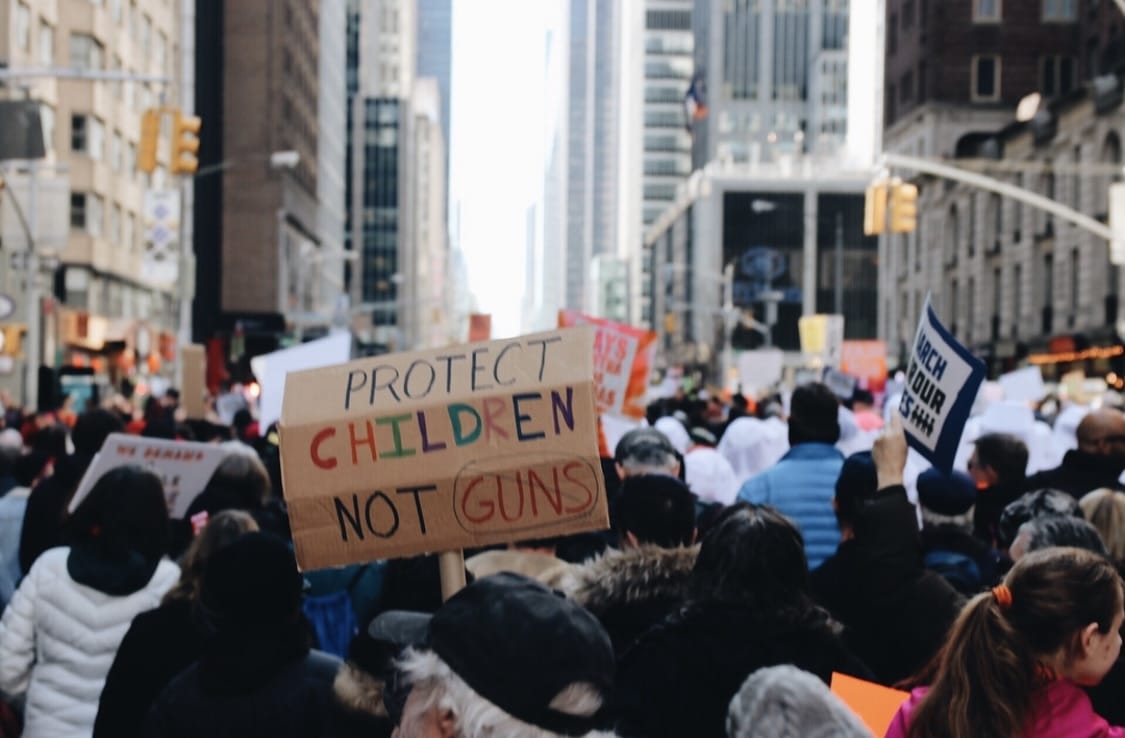Wiley’s Gun Violence Prevention Plan Sees All Kids As “Worthy And Deserving”

Mayoral hopeful Maya Wiley (Flatbush) unveiled her gun violence prevention plan yesterday. The announcement comes as citywide shooting incidents have doubled this year, as well as across both North and South Brooklyn. Deaths from gun violence have doubled in Brooklyn North while tripling in Brooklyn South.

Wiley’s plan builds on what the communities most affected by the shootings have been asking for forever – more opportunities and support for their children. It includes supporting impacted communities in preventing gun violence, creating job opportunities for such communities, expanding public health violence reduction models, and public safety efforts focused on the impacted communities. If elected, she’d redirect resources from NYPD and the Department of Corrections, as well as funds from asset forfeiture to pay for the programs.
“It started in a couple of different ways,” Wiley told Bklyner about the plan. “We were speaking to experts, and I was pulling some of the research, and speaking to those who work on the ground. We also had a People’s Assembly that turned into a conversation on gun violence, and we pulled that all together.”
The assembly she references took place last month, on November 16th, four days after an online press conference held by Bed-Stuy’s Community Education Council 16. Just three weeks earlier, CEC16 President NeQuan McLean’s nephew, Shyheim McLean, was killed outside a deli in Bed-Stuy. McLean used the conference as a call to action and demanded resources to reduce gun violence.

“When we begin to talk about gun violence,” McLean said, “we have to connect gun violence with a lack of education. What happened to Shyheim could’ve been avoided if we had the resources within the communities. I have been frustrated with the lack of resources that are given to communities of color. I am hoping that we could work together to make sure our communities are resourced properly, that schools are funded properly. What bothers me is that it is so easy to get a gun in your hands, but so hard to get a book inside the hands of a student.”
Other community leaders spoke out at the event about their distress and grief over gun violence and how little city leaders have done to fix it.
“I am all too familiar with the pain and mental distress that gun violence can cause, having lost 36 of my friends and family to gun violence,” Tahiti Moore, a community activist, said. “But I also know what is to come together in pain and my tears with my community, to stand and work together, unified, to come up with a plan, to put it into action.” An action that brings more resources to the community.
Local business owner Sabrina Brockman reminded officials that whenever an incident like Shyheim’s death happens, it is a failure for everyone. Tajh Sutton, president of CEC14 in Williamsburg, said it is up to adult community leaders to help Black children know that they matter and when there are so few resources and school fundings to have those kids feel “good and healthy, we show them that we do not value them.”
“For far too long, we have ignored our treasure. We have refused to see the tremendous benefits we all derive, that we see Shyheim as our treasure,” Wiley remarked at the event. “Our elected leaders have done far too little to invest in ensuring that our treasures could shine bright.”
During the event, she spoke of the importance of how dollars are utilized to prevent gun violence. She mentioned moral budgeting when explaining how Black lives are as valuable as all lives and how New York City has failed to invest in such lives. “What we [should] cut is the fat, not the bone. That is what we mean by moral budgeting.”
We held our first People’s Assembly on gun violence. And today we launched our gun violence prevention plan! https://t.co/cPrtF5vFky Come and be heard. Talk to your fellow New Yorkers and put the “d” back in “democracy.” https://t.co/7rcNoAUI5e
— Maya Wiley (@mayawiley) December 3, 2020
Wiley tells Bklyner that the McLean family was calling for a lot of what she had been hearing about how to prevent gun violence over the summer as shootings violated our city. Wiley learned about families who lost someone to shootings, and what they thought was needed to stop the violence.
“Shyheim’s death came at the heels of this,” she says. “The fact is, this isn’t a new problem. And these families, they’re not feeling heard. Families are constantly stepping up and they’re calling for recognition. Leaders are not being responsive.”
When asked about the response to her prevention plan, Wiley says it has been overwhelmingly positive.
“A lot of gratitude is being expressed,” she says, “They could see in the plan what they’ve been asking. Sadly, these people are so used to not seeing responses.”
“We are demanding to fix what’s broken, and for kids to be seen as worthy and deserving.”




